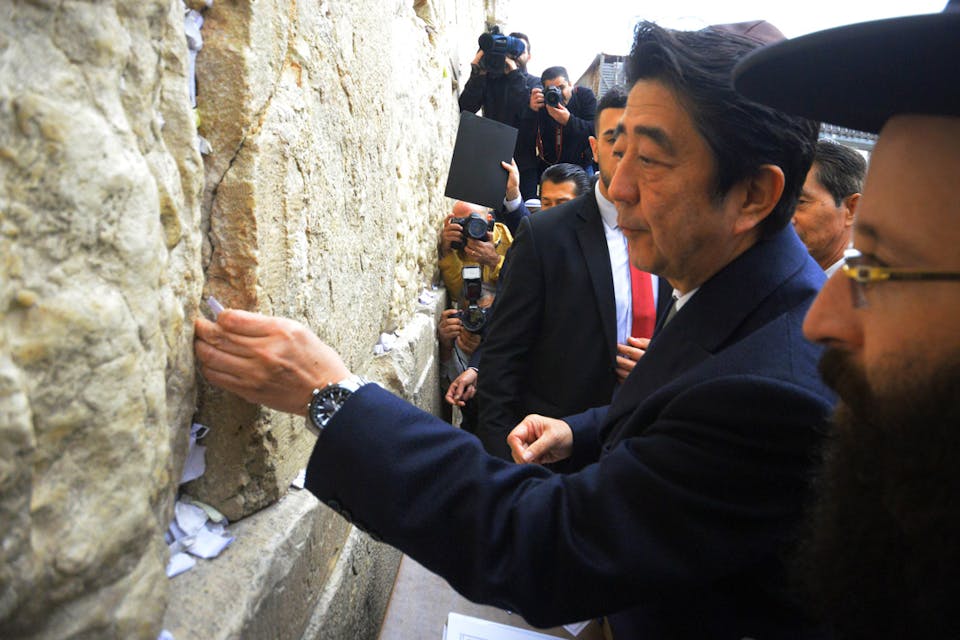
August 6, 2015
Israel and Japan Are Finally Becoming Friends. Why?
After decades of wariness, the two nations are being drawn together by common interests and shared fears.
Walk down a side street in the Jerusalem neighborhood of Ramat Eshkol and you may came across a group of students chatting loudly in Hebrew as they review their Bible lessons of the day. Hardly an extraordinary sight in Israel—except that these aren’t Israelis. They’re young Japanese on student visas who have assumed hybrid names like Asher Sieto Kimura and Suzana Keiren Mimosa. And they’re Makuyas: members of a Japanese religious group that’s been fervently supportive of Israel since 1948.
The movement’s founder—“Makuya” is Japanese for ohel moed, the biblical tent of meeting or tabernacle—was Ikuro Teshima, a Christian businessman who adopted the name Abraham in the belief that the birth of Israel marked the fulfillment of biblical prophecy. His dream, finally realized in the 1960s, was to send groups of young Japanese to Israel, there to study Hebrew and Jewish thought and to volunteer in hospitals, schools, and senior centers. Since then, over 1,000 Makuyas have attended the Hebrew University in Jerusalem, the University of Haifa, the Technion, and other institutions of higher learning. In Japan itself, the Makuya newsletter reaches more than 300,000 subscribers.
Makuya aside, it is true, love of Israel used to be an anomaly in Japan. But it is much less of one now. Prime Minister Shinzo Abe, the first Japanese premier in almost a decade to visit the Jewish state, represents a political establishment that has undergone a significant shift in perception, to the point where a country once kept at arm’s length by Tokyo is now increasingly seen to merit a friendly and indeed a deferential bow. And the feeling is warmly reciprocated.